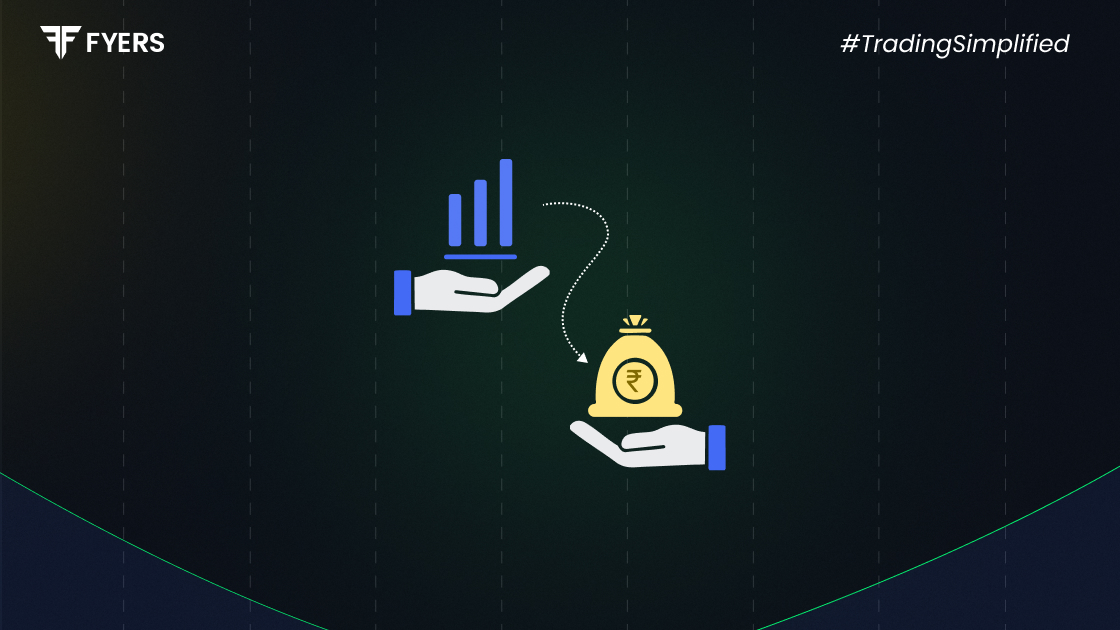

 18 Jun, 2025
18 Jun, 2025
 3 mins read
3 mins read

Shares are one of the most common ways for individuals to participate in the growth and success of companies. Whether you're investing in a well-known company or a fast-growing startup, understanding shares is the first step toward becoming a confident investor. In this article, we’ll explore what shares are, how they work, and why people invest in them.
A share represents a unit of ownership in a company. When you buy shares of a company, you become a shareholder, which means you own a portion of that company. This entitles you to a share in the profits, often in the form of dividends, and gives you certain rights, like voting on company decisions.
Companies issue shares to raise capital for growth, expansion, or paying off debt. When you purchase a share, you provide the company with funds, and in return, you gain part ownership. Shares are typically traded on stock exchanges, where their prices fluctuate based on market demand, company performance, and economic factors.
For instance, if you buy 100 shares of a company at ₹100 each, and the share price rises to ₹150, your investment value grows. You can sell the shares at a profit or hold them for dividends and future gains.
There are mainly two types of shares:
Equity Shares (Common Shares): These give shareholders voting rights and a share in profits. However, they come with higher risk as dividends are not guaranteed.
Preference Shares: These shareholders receive a fixed dividend and have priority over equity shareholders during liquidation, but usually don’t have voting rights.
Ownership: Represents a stake in the company.
Dividends: Possible earnings from profits.
Transferable: Can be bought or sold easily in the market.
Voting Rights: Equity shareholders can vote on key company matters.
Capital Gain Potential: Value can increase based on company performance.
Risk-bearing: Value may also decrease, based on market or company risks.
Potential for High Returns: Long-term investments in shares often yield higher returns than traditional savings.
Dividends: A regular income source if the company distributes profits.
Liquidity: Shares can be sold quickly in the stock market.
Ownership Rights: Participation in company decisions.
Diversification: Adds balance to an investment portfolio.
Imagine a company, XYZ Ltd., issues 1,00,000 shares priced at ₹10 each. If you buy 1,000 shares, you own 1% of the company. If the company performs well and the share price increases to ₹15, your 1,000 shares are now worth ₹15,000 instead of ₹10,000. Additionally, you may receive dividends if the company distributes profits.
Market Risk: Share prices fluctuate due to market conditions.
Business Risk: Poor company performance can reduce share value.
No Guaranteed Returns: Dividends are not obligatory.
Liquidity Risk: Some shares may be hard to sell quickly without losing value.
Shares offer a way to grow wealth and participate in a company's success, but they also come with risks. Understanding how shares work, their features, and benefits can help you make more informed investment decisions. They are a vital part of many investment portfolios and a key building block of financial literacy.
Owning a share means you own a part of a company. As a shareholder, you may receive dividends, vote in company matters, and benefit from price appreciation.
Shares can make money through two ways: capital gains (when share prices rise) and dividends (profit distribution by the company)
"Shares" refer to the individual units of ownership in a specific company, while "stocks" is a broader term often used to describe ownership in multiple companies.
Calculate your Net P&L after deducting all the charges like Tax, Brokerage, etc.
Find your required margin.
Calculate the average price you paid for a stock and determine your total cost.
Estimate your investment growth. Calculate potential returns on one-time investments.
Forecast your investment returns. Understand potential growth with regular contributions.